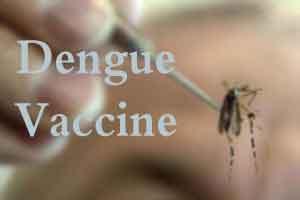- Home
- Editorial
- News
- Practice Guidelines
- Anesthesiology Guidelines
- Cancer Guidelines
- Cardiac Sciences Guidelines
- Critical Care Guidelines
- Dentistry Guidelines
- Dermatology Guidelines
- Diabetes and Endo Guidelines
- Diagnostics Guidelines
- ENT Guidelines
- Featured Practice Guidelines
- Gastroenterology Guidelines
- Geriatrics Guidelines
- Medicine Guidelines
- Nephrology Guidelines
- Neurosciences Guidelines
- Obs and Gynae Guidelines
- Ophthalmology Guidelines
- Orthopaedics Guidelines
- Paediatrics Guidelines
- Psychiatry Guidelines
- Pulmonology Guidelines
- Radiology Guidelines
- Surgery Guidelines
- Urology Guidelines
'Screen and vaccinate policy' for dengue effective and gainful, finds study

Screen and vaccinate is beneficial at the individual/population level in most settings. The cost-effectiveness is as good if not better than a ‘no screening’ strategy.
France: The World Health Organization (WHO) recommends a screen and vaccinate policy for the licensed dengue vaccine (Dengvaxia, Sanofi Pasteur) so that only people with previous dengue infection are vaccinated. Now, a recent study published in the journal Vaccine has found, the policy to have a positive impact both at the individual and population levels across a wide range of transmission settings. It has the potential to be as, if not more, cost-effective than a no screening strategy.
The live, attenuated, tetravalent dengue vaccine is relatively new and has been adopted by some countries. It carries a risk of severe dengue illness and hospitalization in those who were seronegative before receiving it. Despite the WHO recommendation, questions persist about the public health impact and cost-effectiveness of the step.
The objective of the current study by Laurent Coudeville, Vaccination Value Modelling, Sanofi Pasteur, Lyon, France, and colleagues was to build upon a recently published analysis of the benefits and risks associated with dengue vaccination to evaluate the public health impact and cost-effectiveness of a screen and vaccinate strategy.
The researchers used a previously reported transmission model based on results from three dengue vaccine efficacy trials. They also used data from an assessment of three dengue rapid tests, which all had high specificity and with sensitivities that ranged from 50% to 90%.
Outcomes (dengue-related hospitalizations, severe dengue, and symptomatic dengue) were assessed according to the level of transmission setting. The cost-effectiveness of vaccination in 10 endemic countries was also assessed.
Read Also: New tetravalent dengue vaccine looks promising in Phase 3 Trial
Key findings of the study include:
- Although associated, in most cases, with a lower population impact than a ‘no-screening’ approach, a screen and vaccinate strategy is more effective in reducing the number of hospitalized and severe cases prevented per vaccination performed and generates positive health benefits for individuals screened and subsequently vaccinated. As a result, this intervention is cost-effective in all countries considered except for very low transmission settings.
- The overall population impact of a screen and vaccinate approach is also likely to be improved by the use of several rounds of screening (up to 48% reduction in dengue hospitalization over 10 years with 5 rounds).
Read Also: New dengue vaccine may up infection in low affected areas: study
"Our analysis suggests that in ten dengue-endemic countries the intervention is likely to be cost-effective in settings with a seroprevalence ≥ 30% among children aged 9 years. The potential development of new rapid diagnostic tests (RDTs) with higher sensitivity should help to improve the impact and cost-effectiveness of dengue vaccination programs," concluded the authors.
The study, "The potential impact of dengue vaccination with, and without, pre-vaccination screening," is published in the journal Vaccine.

Disclaimer: This site is primarily intended for healthcare professionals. Any content/information on this website does not replace the advice of medical and/or health professionals and should not be construed as medical/diagnostic advice/endorsement or prescription. Use of this site is subject to our terms of use, privacy policy, advertisement policy. © 2020 Minerva Medical Treatment Pvt Ltd